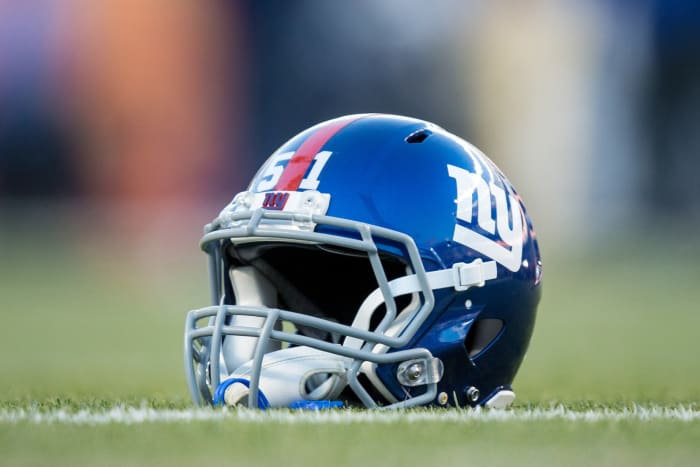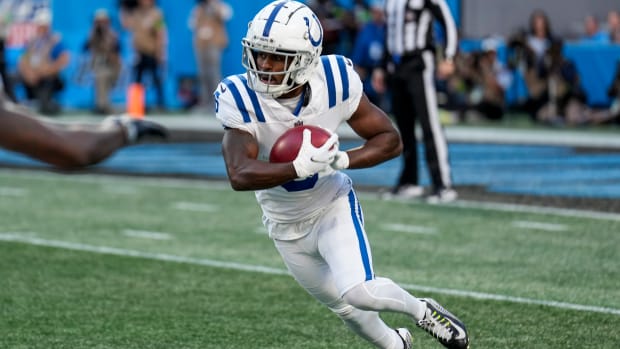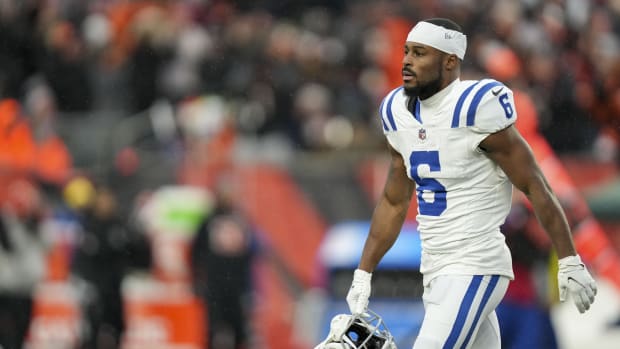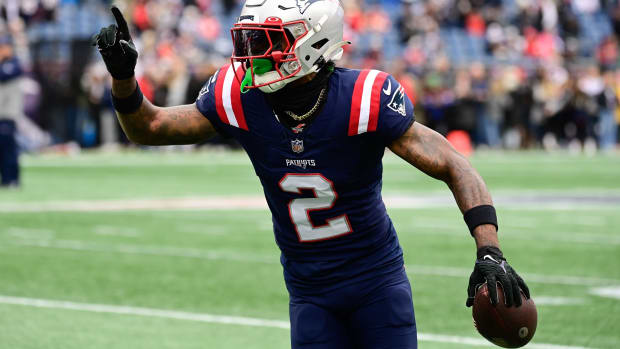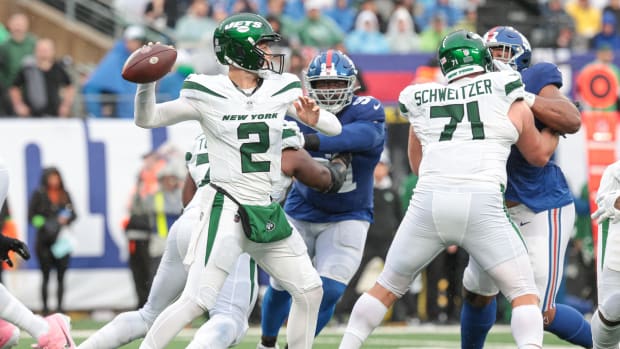Giants Currently Last in 2021 Cap Space Carryover
According to the 2020 U. S. Census Bureau's data, the average U.S. household's median income is $67,521.
That's significantly more than the New York Giants 2021 leftover cap space, which per ESPN's Field Yates, is $13,986, a preliminary figure pending the year-end, league-wide audit.
Still, that $13,986 figure, dead last in the league, is an indication of just one of the many challenges that await whoever the next Giants general manager is. Per Over the Cap, New York will be in the red by $19,454,343 in terms of functional cap space (cap space needed to cover their Top-51 salaries when the league's Top 51 rule begins on the first day of the new league year.
That means the Giants will have to sharpen their pencils and make some hard decisions regarding their cap status.
At the root of the problem is that the Giants are grossly top-heavy going into 2022. Their top five highest cap figures --defensive lineman Leonard Williams ($27.3 million), cornerback James Bradberry ($21.8 million), receiver Kenny Golladay ($21.15 million), cornerback Adoree' Jackson ($15.264 million), and inside linebacker Blake Martinez ($14.025 million)--account for nearly 50 percent of the total cap.
More from Giants Country
Part of that is the result of the team trying to squeeze every last drop of cap space last year to fit in so many free agents via lowered first-year contract numbers for the new deals and the restructuring of Bradberry's deal to clear some space.
The trade-off is that the second year of those contracts has ballooned out of control, with three of those top-five highest-paid players--Williams, Bradberry, and Golladay--each accounting for over $20 million of cap space.
It doesn't help that the revenue from the new television broadcast deals won't hit the cap until 2023. Still, the good news is that the Giants can straighten out their alarmingly poor cap situation in a year with some prudent decisions regarding cuts, restructures, and reductions.
This will likely result in a higher than average amount of dead money landing in the books. (For reference, the average dead money amount league-wide is currently $5.637 million.)
Ideally, teams shouldn't look to rack up a lot of dead money. But in the Giants' case, this might be a necessary step to restore balance to an otherwise unbalanced salary cap situation.
Join the Giants Country Community
- Sign up for our FREE digest newsletter
- Follow and like us on Facebook
- Submit your questions for our mailbag
- Listen and subscribe to the daily LockedOn Giants podcast.
- Subscribe and like the new LockedOn Giants YouTube Channel
- Sign up for our FREE message board forums

